National
Liberals push to lower voting age to 16 in federal elections

From LifeSiteNews
Liberals in Canada, led by MP Nathaniel Erskine-Smith, are petitioning to lower the federal voting age to 16, arguing that ‘informed’ youth should have a voice in elections.
Liberals are petitioning for high schoolers to be allowed to vote in federal elections.
In a July petition introduced to the House of Commons by Liberal MP Nathaniel Erskine-Smith, Liberals are pushing for the voting age for federal elections to be reduced from 18 years old to 16 years old, arguing that youth need a voice in society.
“Sixteen and seventeen-year-olds across Canada are already taking on real responsibilities, from working part-time jobs and paying taxes, to driving, volunteering, and taking on family responsibilities,” the petition stated.
“Young Canadians are informed, thoughtful, and actively involved in their schools, communities, and movements that shape our country’s future,” it continued.
“Extending the voting age to 16 would empower a new generation to participate in democracy while still in school, where habits of civic engagement are more easily built and supported,” the petition declared.
Interestingly, the Liberals’ push to decrease the voting age in Canada comes at a time when young Canadians are increasingly voting Conservative.
In 2015, former Prime Minister Justin Trudeau was wildly popular with Canadian youth, receiving the majority of the young vote and visiting high schools across the country.
However, in the 2025 election, young Canadians favored the Conservative party, which received 41 percent of the votes from Canadians aged 18-34, while Liberals only received 37 percent from the same demographic.
The political shift is largely attributed to rising costs of living, including food and housing, under the Liberal administration.
Trudeau’s carbon tax, framed as a way to reduce carbon emissions, has cost Canadian households hundreds of dollars annually despite rebates. According to the Parliamentary Budget Officer, this year, the tax will cost the average Canadians family up to $911 more this year than they get back in rebates.
Additionally, in 2024, Food Banks Canada reported that 2 million visit food banks each month, a 90% increase from 2019.
Furthermore, directly following a report that Canada’s poverty rate increased for the first time in years due to high inflation spurred by government spending, polls showed that nearly half of Canadians are only $200 from complete financial ruin, and yet Liberals refused to change their policies.
Addictions
After eight years, Canada still lacks long-term data on safer supply
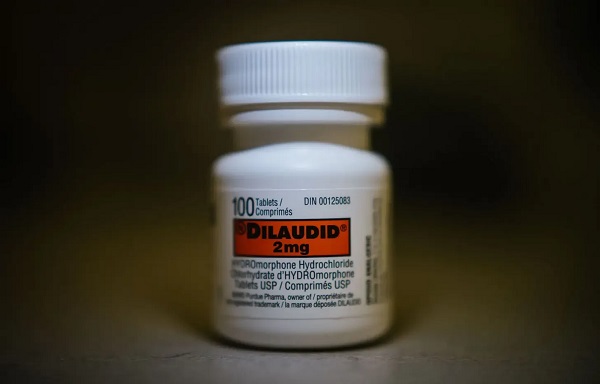
By Alexandra Keeler
Canada has spent more than $100 million on safer supply programs, but has failed to research their long-term effects
Canada lacks long-term data on safer supply programs, despite funding these programs for years.
Safer supply programs dispense pharmaceutical opioids as a replacement for toxic street drugs.
There is a growing body of research on safer supply’s short-term health effects. But there are no Canadian studies that evaluate program participants’ health impacts beyond 18 months.
The absence of research into long-term data on safer supply means policymakers do not understand how safer supply affects participants’ health, substance use or social outcomes over time.
“Long-term data is important because it helps us understand not just short-term health outcomes like reduced overdoses, but also broader impacts on quality of life, stability and health care use,” said Farihah Ali, scientific lead at the Institute for Mental Health Policy Research at CAMH. The Centre for Addiction and Mental Health is one of Canada’s leading centres for addiction research and clinical care.
Pilot projects
Canada’s first safer supply programs were introduced in Ontario in 2016. Those programs were initially small in scope, intended for a small group of high-risk individuals.
In 2020, the federal government began funding safer supply pilot programs across the country. Provinces are responsible for the delivery and regulation of these programs.
B.C. introduced provincewide programs in 2021. Other provinces, such as Alberta, have restricted safer supply access to a very small number of clinics, and have generally shifted away from harm reduction models in favour of recovery-oriented approaches.
According to the Canadian Public Health Association, an advocacy organization, the original goal for safer supply was to reduce deaths and harms associated with the unregulated toxic drug supply. It was not meant to replace addiction treatment, but to rather act as a bridge to further care.
However, a 2023 report by researchers at McMaster University and Simon Fraser University noted safer supply “does not principally operate toward goals of treatment or recovery.” The report describes safer supply instead as an emergency intervention focused on stabilization and survival.
Evidence gaps
There is a small but growing body of short-term studies on the health effects of Canada’s safer supply programs. Most only track participants’ outcomes for up to 12 months.
Some of those studies suggest safer supply may reduce the immediate harms associated with drug use.
A 2024 study found a 91 per cent reduction in the risk of death among high-risk individuals receiving safer supply in B.C. Critics have raised concerns about the study’s methodology, sample size and confounding variables.
In contrast, a March study suggested B.C.’s safer supply and decriminalization policies may be associated with increased hospitalizations. These findings also sparked controversy, with experts debating how well the data isolate causal impacts.
And a comparative study released in April also showed some positive outcomes from safer supply. It too sparked significant expert debate.
‘Arms-length’
Of all the provinces, B.C. has implemented safer supply most broadly. The province’s health ministry did not directly respond when asked about the long-term goals of its safer supply program, or whether B.C. collects longitudinal data on program participants’ health outcomes.
“Evidence shows [safer supply] helps separate people from the unregulated drug supply, manage their substance use and withdrawal symptoms with regulated medications, and helps connect them to voluntary health and social supports,” a Ministry of Health spokesperson told Canadian Affairs in an email.
The ministry did not provide the evidence it referenced.
At the federal level, Health Canada confirmed that, to date, it has funded just two evaluations of safer supply programs, despite spending more than $100 million on safer supply since April 2023.
The first was a short-term study, funded by the federal government’s Substance Use and Addictions Program program. Conducted over four months, that study assessed 10 safer supply programs in Ontario, B.C., and New Brunswick. It documented initial impacts on participants’ lives and program delivery, primarily through qualitative methods such as interviews and surveys.
The second study is an ongoing, “arms-length evaluation” of 11 safer supply pilot programs funded by the Canadian Institutes of Health Research (CIHR), Canada’s federal health research agency.
When asked about long-term research on safer supply, Health Canada referred Canadian Affairs to a 2022 funding announcement about this multi-year evaluation. While the evaluation is being conducted over several years, it is unclear if it includes long-term tracking of patients’ outcomes.
Barriers and resistance
There are a number of factors that make it challenging to evaluate safer supply programs over long periods.
Ali, of CAMH, says unstable, short-term funding can disrupt long-term research.
“When programs are shut down or scaled back, we lose contact with participants and the ability to track outcomes over time,” she said.
Program participants can also be difficult to track over long periods, she says. Many struggle with housing insecurity, health instability and criminalization.
Frontline staff also face burnout and high turnover, she says, limiting support for such research activities.
Additionally, there are tradeoffs between the anonymity needed to encourage patients to access safer supply programs and the ability to collect detailed data.
“Ethical concerns — like not wanting to burden participants or risk their safety or confidentiality — require us to design studies that are trauma-informed and flexible, which adds complexity to long-term data collection,” Ali said.
Julian Somers, a clinical psychologist and professor at Simon Fraser University, says B.C.’s failure to conduct long-term evaluations of its safer supply programs is not just an oversight, but an act of negligence.
“B.C. has some of the best pharmaceutical data systems in the world,” Somers said, referring to PharmaCare and PharmaNet — databases that capture every prescription drug transaction in the province.
Somers says his team previously used PharmaNet data to examine prescribed opioids’ effects on health and social outcomes. In 2017, he proposed a long-term safer supply evaluation using these tools.
In 2017, he proposed a long-term evaluation of B.C.’s safer supply programs.
The province declined.
According to Ali, “Future research should explore how safer supply impacts people’s long-term health, stability and connection to care.”
“We also need to listen to people’s experiences, how safer supply affects their daily lives, their sense of dignity, and their relationships with care providers through qualitative mechanisms.”
This article was produced through the Breaking Needles Fellowship Program, which provided a grant to Canadian Affairs, a digital media outlet, to fund journalism exploring addiction and crime in Canada. Articles produced through the Fellowship are co-published by Break The Needle and Canadian Affairs.
Business
Democracy Watchdog Says PM Carney’s “Ethics Screen” Actually “Hides His Participation” In Conflicted Investments

 Sam Cooper
Sam Cooper
A democracy watchdog is warning that Prime Minister Mark Carney’s sprawling private investments, including substantial holdings in Brookfield as well as shares in more than 550 other companies, cause a disabling conflict of interest that cannot be solved by his so-called “ethics screen,” ultimately undermining Ottawa’s credibility and negating Carney’s capacity to confront hostile regimes, including China.
In a scathing statement this week, Democracy Watch urged Carney to fully divest his shares and stock options, arguing that Ottawa’s purported “screen” — which relies on Carney’s chosen staff to supposedly shield the prime minister from conflicted business decisions — actually “allows him to participate in, and hides his participation in, almost all decisions that affect his investments.”
Democracy Watch cited the landmark 1987 Parker Commission on conflicts of interest, which concluded that top public officials must sell all investments outright and that blind trusts should be banned as ineffective “shams.”
These warnings echo The Bureau’s March 2025 pre-election investigation, which outlined in granular detail Carney’s deep entanglements with Brookfield and China.
The Bureau revealed that Brookfield, the $900 billion investment giant Carney joined in 2020, held over $3 billion in politically sensitive assets connected to Chinese state-linked real estate and energy conglomerates, as well as a significant offshore banking footprint. One of its headline deals — a $750 million stake in a Shanghai commercial property project dating back to 2013 — was tied to a Hong Kong tycoon with official links to the Chinese People’s Political Consultative Conference, a central “united front” body identified by the CIA as a tool of Beijing’s overseas influence operations.
Brookfield’s heavy exposure in Shanghai was compounded last year when, amid China’s collapsing real estate market, Carney’s company secured nearly $300 million in emergency loans from the Bank of China. As The Bureau reported, this arrangement carried echoes of Carney’s tenure as Bank of England governor, when he helped facilitate the global expansion of the Chinese financial system and lauded the internationalisation of the renminbi as “a global good.”
While Carney claims to have stepped away from operational control at Brookfield before entering politics, The Bureau’s reporting suggested that his influence over the firm’s China strategy lingered well into his leadership tenure.
Duff Conacher, co-founder of Democracy Watch, reinforced the watchdog’s position in interviews with The Bureau.
“It was very unethical for Mark Carney to hide his investments in more than 560 companies for the past four months,” Conacher said. “Unfortunately, many media outlets failed to cover the conflicts of interest, especially regarding Brookfield, and failed to point out that his so-called blind trust isn’t blind at all.”
Conacher warned that Carney’s private holdings risk tainting not just domestic policy but also Canada’s international relationships and moral authority.
“Mark Carney’s investments will affect not only his decisions about laws, policies, taxes and subsidies that affect businesses in Canada but also, given Brookfield’s business interests around the world, will also taint the Canadian government’s relationships,” Conacher said. “This will weaken the government’s actions concerning other countries, including countries like China that interfere in Canadian politics and threaten Canada’s interests in many ways.”
In yet another pre-election investigation published in February 2025, The Bureau delved into Carney’s deep political and business networks that bridge global trade interests converging around China and pro-Beijing Western business elites — networks that illustrate the same theme of ethical conflicts haunting Ottawa today.
As Canada braced for a leadership change — with Prime Minister Justin Trudeau poised to step down in February — the central question of Carney’s campaign, as The Bureau reported, was whether he would govern differently from the deeply unpopular Trudeau. That framework held until Carney’s team succeeded in shifting baby boomer voters onto a new predominant election issue: that he was the best leader to confront President Donald Trump in a trade war — a claim that, in hindsight, appears absurd to critics, given Carney’s massive personal investment interests in American companies.
Regardless, back in February, Carney’s camp insisted he was a fundamentally different figure from Trudeau.
Yet The Bureau’s closer examination of Carney’s elite network — guided by the principle that long-standing relationships of trust and shared financial interests shape governance — revealed a constellation of global influencers deeply tied to the World Economic Forum and China’s trade and finance arms, particularly the Asian Infrastructure Investment Bank (AIIB). At its core, this network of influential figures — whose stated goals center on consolidating financial power across borders to coordinate carbon-reduction policies and progressive social outcomes — included not just Carney and Trudeau but also former Canadian ambassador to China Dominic Barton, Trudeau campaign backers Mark Wiseman and Gerald Butts, and AIIB’s Jin Liqun, a senior Chinese Communist Party operative.
Carney’s influence also appeared to extend into Canada’s state broadcaster. Former Power & Politics host Evan Solomon — who in 2015 was embroiled in an art-dealing scandal involving Carney, whom he referred to as “the Guv” — later joined a consultancy with Carney’s wife and Gerald Butts. In a leaked email, cited in The Toronto Star’s 2015 art-dealing exposé, Solomon reportedly wrote: “Next year in terms of the Guv will be very interesting. He has access to the highest power network in the world.”
As it turned out, the ties between the former CBC art-dealing host and the former Bank of Canada governor stood the test of years. Solomon was ultimately chosen by Carney to run for the Liberal Party in Toronto and now serves as his Minister of Artificial Intelligence — a revealing trajectory that exemplifies the ethical ambiguity behind Carney’s deeply intertwined media, business, and political influence networks.
The Bureau is a reader-supported publication.
To receive new posts and support my work, consider becoming a free or paid subscriber.
Invite your friends and earn rewards
-
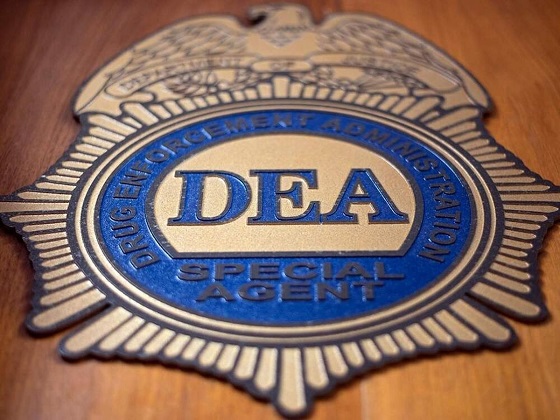
 Crime2 days ago
Crime2 days agoDEA Busts Canadian Narco Whose Chinese Supplier Promised to Ship 100 Kilos of Fentanyl Precursors per Month From Vancouver to Los Angeles
-
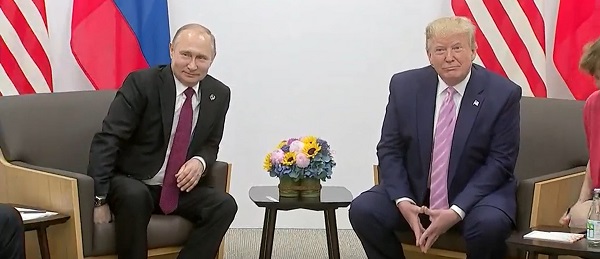
 conflict2 days ago
conflict2 days agoTrump’s done waiting: 50-day ultimatum for Putin to end Ukraine war
-

 Business9 hours ago
Business9 hours agoDemocracy Watchdog Says PM Carney’s “Ethics Screen” Actually “Hides His Participation” In Conflicted Investments
-
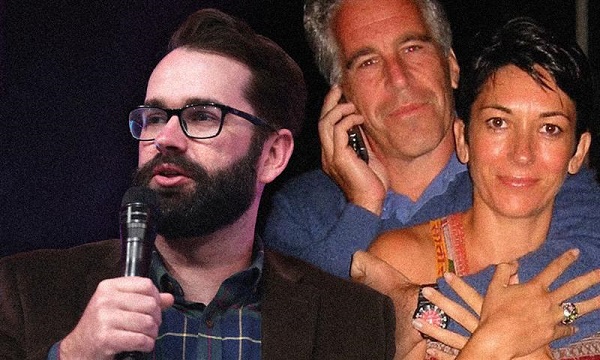
 International22 hours ago
International22 hours agoMatt Walsh slams Trump administration’s move to bury Epstein sex trafficking scandal
-
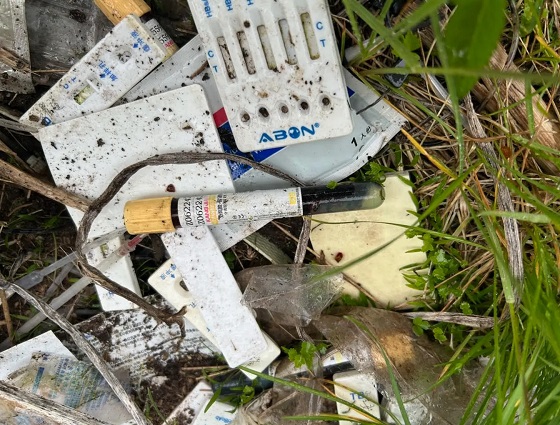
 Immigration9 hours ago
Immigration9 hours agoUnregulated medical procedures? Price Edward Islanders Want Answers After Finding Biomedical Waste From PRC-Linked Monasteries
-

 Alberta2 days ago
Alberta2 days agoMedian workers in Alberta could receive 72% more under Alberta Pension Plan compared to Canada Pension Plan
-
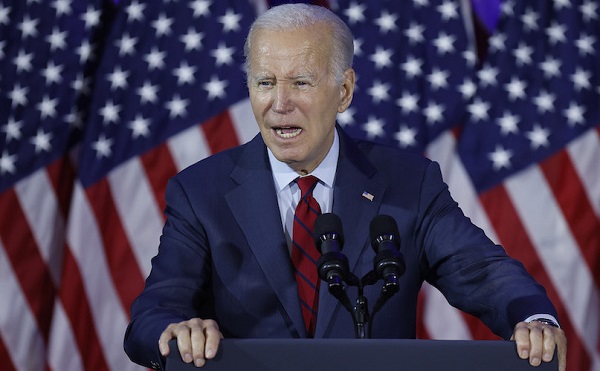
 International1 day ago
International1 day agoBiden autopen scandal: Did unelected aides commit fraud during his final days in office?
-

 Business1 day ago
Business1 day agoConservatives demand probe into Liberal vaccine injury program’s $50m mismanagement





